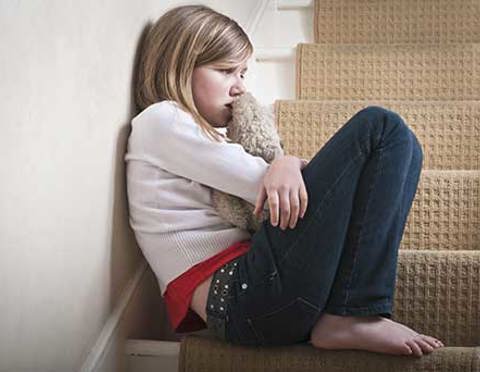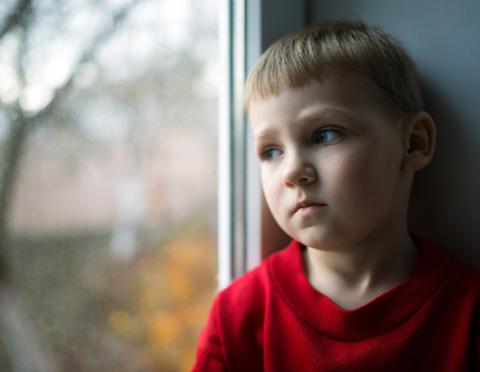What is abuse?
Child abuse is when someone causes (or doesn't prevent) significant harm to a child. (Source: Scottish Government)
Although abuse can take many forms, it’s usually falls into one or more of the following four categories:
- Physical abuse: where children are hurt or injured, for example by being hit, kicked or beaten.
- Sexual abuse: where children are forced or persuaded into sexual acts or situations, which includes online abuse and exploitation, grooming and exposure to sexual material.
- Physical neglect: where children’s basic needs such as food, warmth, love, attention, medical care, clothing and hygiene are not met.
- Emotional abuse: where children are called names, humiliated, punished in degrading ways, threatened or not given love and attention. Seeing or hearing domestic abuse is also a form of emotional abuse.

Children will often go to great lengths to hide any abuse they are experiencing. They may be ashamed and confused. They might blame themselves or be scared of what will happen to them if they tell someone.
Signs of abuse or neglect
There are some signs to look out for if you suspect a child is being abused or neglected:
- Their personality may change. They might become withdrawn, nervous, low in self-esteem or have noticeable mood swings.
- Their behaviour might change. Behaviour change can often be a sign of distress or trauma. Depending on their age, this could mean a child becomes angry and lashes out, may wet the bed, turn to self harm or use alcohol or drugs to cope with their feelings.
- They might cover their body with layers of clothing to hide any physical injuries, or because they feel ashamed.
- They may use sexually explicit language or show sexual behaviour that wouldn’t be expected at their age.
If something is worrying you that isn’t on the list above, don’t ignore it. If you are unsure, or you just have a bad feeling, talk it over.
We all have a responsibility to keep children safe. If you think a child is at risk or in danger, call Parentline free, contact your local social work department or the police.
What are the effects of child abuse?
Child abuse can cause physical injury. It also causes emotional trauma which can have a much greater impact on a child’s development and wellbeing.
Without support to recover, adults abused as children may find it difficult to form relationships because they are unable to trust people, in later life. All forms of abuse have a harmful effect on children and young people.

The effects of trauma from abuse can lead to survivors experiencing:
- low self-esteem and self-worth
- exclusion from school and poor educational results/qualifications
- poor coping mechanisms, confidence and ability to make decisions
- difficulty in trusting people and sustaining relationships
- vulnerability to further abusive relationships
- mental health issues including anxiety, panic attacks, post-traumatic stress, self harm or suicide
- homelessness
- prison
- substance misuse and addiction.
You can read more about trauma and children's brains in our guide to child development.
Recovering from abuse
There is hope for children and adults who have been abused in childhood. With the right support, whether you’re a child or an adult you can repair and recover from the physical and emotional trauma of abuse.
By raising concerns about a child, you could help stop the abuse and your help could set them on the first step towards recovering from their experience.
Children can’t always speak out for themselves, so if you are worried – you need to speak out for them.
